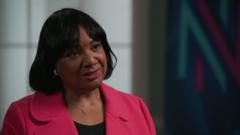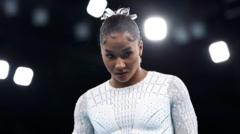Democratic candidates in the most competitive House races overwhelmingly outraised their Republican opponents between July and September, buoyed by a surge in enthusiasm when Vice President Harris replaced President Biden as the party’s nominee.
They also largely lead in overall fundraising this cycle, a major warning sign for Republicans despite their public projections of confidence. The GOP is fighting to retain control of the House, while Democrats are pushing to pick up a net of at least four seats to gain the majority.
Money isn’t everything in politics, but the candidate with the most money usually wins the election, and incumbents tend to have a fundraising advantage.
While all 435 seats are up for reelection this year, only a handful of the races are considered truly competitive.
Democratic candidates outraised Republicans in 25 of 26 districts rated as “toss-ups” by the nonpartisan election handicapper Cook Political Report in the third quarter and in 24 of those districts over the course of the cycle, The Hill found in an analysis of reports filed with the Federal Election Commission this week.
In races rated as “lean” Democratic or Republican, 14 Democratic candidates outraised Republicans in the third quarter, while three Republicans had the fundraising edge. But when looking at cycle-to-date figures, seven of the 17 races in that category had Republicans outpacing Democrats.
By far the biggest fundraising disparity was in Virginia’s 7th District, an open seat being vacated by Rep. Abigail Spanberger (D) as she runs for governor. Democratic nominee Eugene Vindman, who was a key figure in the first impeachment of former President Trump, raked in $5.4 million more than his Republican opponent, Derrick Anderson, in the third quarter of the year.
The massive hauls come as Harris has seen a stunning influx of cash into the campaign, putting her at an advantage over Trump. Her operation has raised a staggering $1 billion.
The Democratic Congressional Campaign Committee (DCCC) is flaunting the fundraising hauls for the battleground seat candidates.
“The American people are ready for a Democratic majority that will lower costs, grow the middle class, and fight for their freedoms — that’s why Democrats continue to outraise their opponents,” DCCC spokesperson Viet Shelton said in a statement.
“Republicans’ disastrous third quarter is a result of Republicans caving to the extremists in their party and failing to deliver results. They’re losing momentum, money and, in November, the majority.”
The National Republican Congressional Committee (NRCC), however, noted that its “NRCC Patriots” candidates — its term for the House GOP’s vulnerable incumbents — have an average cash-on-hand advantage of about $276,000 compared to the DCCC’s front-liner incumbent candidates.
But according to the DCCC, Democratic front-liners have an average cash on hand advantage of $1.4 million compared to their challengers.
Keeping control of current seats will be key to either party’s path to controlling the House.
Fundraising is not the sole predictor of success in a campaign. And despite the Republican candidates trailing behind Democrats in the fundraising arena, various election forecasters — including The Hill/Decision Desk HQ, Inside Elections, and FiveThirtyEight — find Republicans with a narrow edge to keep control of the House.
One bright spot for Republicans is that the super PAC affiliated with House GOP leadership, the Congressional Leadership Fund (CLF), had a massive fundraising quarter, raising $81.5 million in the third quarter of 2024 and beginning October with nearly $153 million in cash on hand.
On Wednesday, CLF announced $12 million in additional ad reservations to aid candidates in battleground districts, bringing its total investment to $202 million.
House Majority PAC, the comparable super PAC affiliated with Democratic leadership, reports its figures on a monthly basis and has not yet announced its September figure. But it began September with $109.5 million in cash on hand, and on Sept. 30 announced an additional $14.5 million in ad reservations, for a total of $229 million across television, radio, and digital ads.
The main party committees, however, also see Republicans lagging behind in fundraising, with the NRCC trailing the DCCC by $12 million in August. The NRCC had $70.7 million in cash on hand compared to $87 million for the DCCC.
Republicans have long known they had issues with the dash for cash. On an August conference call, GOP leaders urged Republicans to ramp up fundraising efforts.















 English (US) ·
English (US) ·